
Open Access in Humanities
International conference organised in 2018 as part of Liber.ac.

International conference organised in 2018 as part of Liber.ac.
According to the National Strategy of Open Access to Scientific Publications and Research Data in Slovenia 2015-2020, researchers and (academic) publishers will be obliged to publish all their publications, articles and research data derived from nationally funded research in the form of open access in two years. Are researchers, publishers and institutions that are dependent on Slovenian Research Agency calls (e.g., for the issue of scientific journals and monographs) prepared? Is there an infrastructure in Slovenia that would enable publishers and researchers to publish their works in the form of open access? Who will cover the costs associated with the publication of publicly accessible publications? What are the advantages of open access and how are the challenges of open access facing abroad?
ORGANIZERS: University of Ljubljana, Faculty of Arts, and University of Ljubljana as OpenAIRE National Open Access Desk.
DATE: 22 May 2018 from 11 am til 2.30 p.m
VENUE: University of Ljubljana, Faculty of Arts, Aškerčeva 2, Ljubljana. Lecture hall No. 2 (ground floor of Faculty of Arts). Videostreaming to the web and permanent availability of video (link to videostreaming is at the bottom of the web page).
REGISTRATION: via web form, no registration fee.
LANGUAGE: Foreign lecturers will carry out the presentations in English. Chair persons will introduce presenters in Slovenian. The panel discussion will be carried out in English (there will be no translation from English to Slovenian).
TARGETED STAKEHOLDERS: Researchers from the humanities, Slovenian publishers of peer reviewed journals and scientific monographs in the humanities, National Contact Points (NCPs). Representative of the Ministry of Education, Science and Sport will participate as well as a representative of the Slovenian Research Agency which is the major research funder in the country.
GENERAL CONTACT: Dr Matevž Rudolf (znanstvena.zalozba@ff.uni-lj.si, +386 1241 11 81)
CONTACT FOR FOREIGN PRESENTERS: Dr Mojca Kotar (mojca.kotar@uni-lj.si, +386 1 2418 679)
|
Name, surname, organization |
Topic/title of presentation |
|---|---|
|
Dr Roman Kuhar, dean of the Faculy of Arts, University of Ljubljana |
Welcome address |
|
dr. Ernesto Priego, City University of London |
Open access monographs in the humanities / Open Library of Humanities |
|
Mr Pierre Mounier, projects OPERAS and HIRMEOS |
European e-infrastructure for open access publications in the social sciences and humanities |
|
Mr Martin Donnelly, Digital Curation Centre and FOSTER project, University of Edinburgh |
Data and Openness in the Arts and Humanities |
|
Dr Matevž Rudolf and M.A. Eva Vrbnjak, Ljubljana University Press, Faculty of Arts |
Slovenian case of good practice on open access in the humanities (Open Journal System, Open Monograph Press) |
|
Assist Prof Dr Darja Fišer, University of Ljubljana, Faculty of Arts and CLARIN |
CLARIN and open data in the humanities |
|
M.A. Irena Vipavc Brvar in Dr Sonja Bezjak, Social Science Data Archives |
Social Science Data Archives: 20 years of digital preservation research data |
|
Dr Ernesto Priego, City University of London Mr Pierre Mounier, projects OPERAS and HIRMEOS Mr Martin Donnelly, Digital Curation Centre and FOSTER project, University of Edinburgh prof dr József Györkös, Director of The Slovenian Research Agency Dr Meta Dobnikar, Ministry of Education, Science and Sport Dr Matevz Rudolf, Ljubljana University Press, Faculty of Arts |
Panel discussion. How to establish open access in Slovenian academic publishing and researching? |
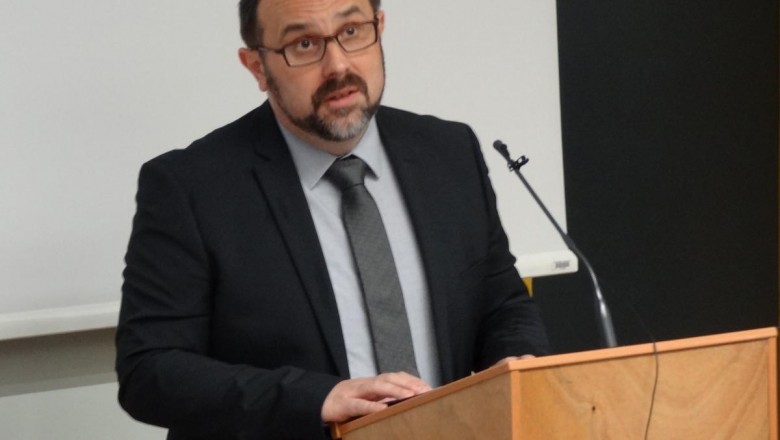
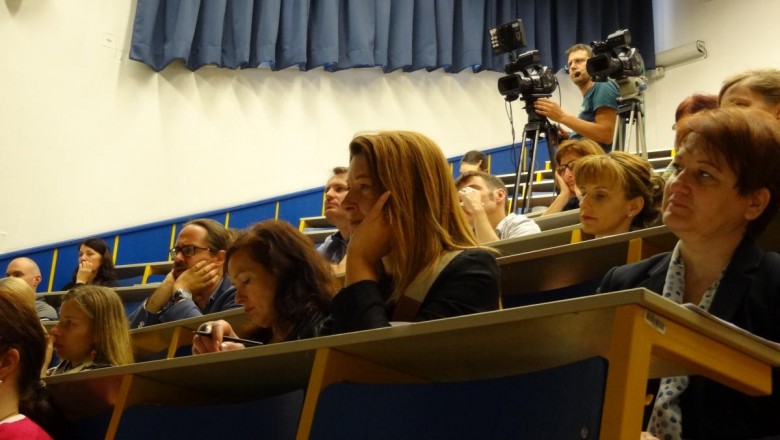
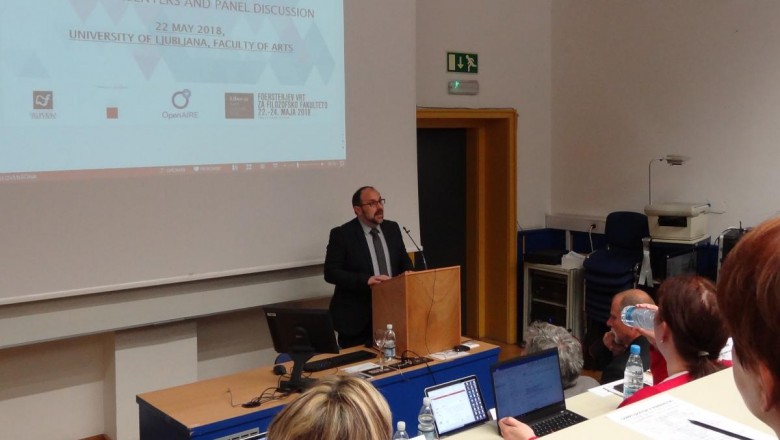
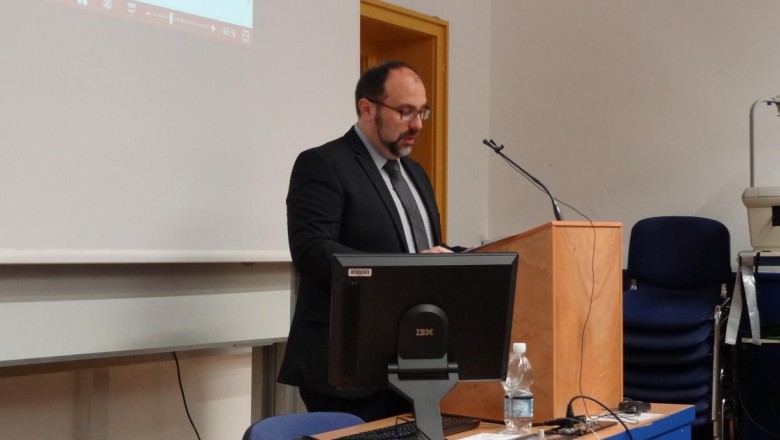
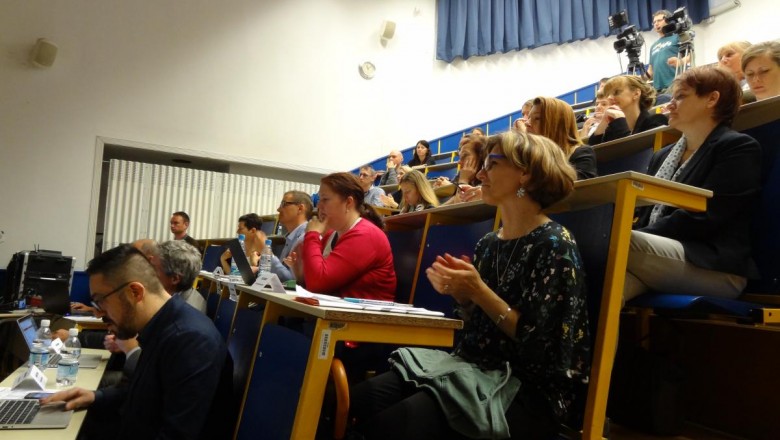
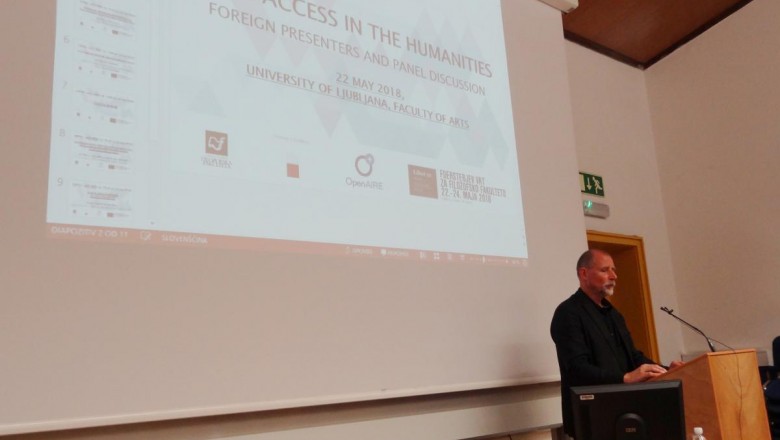
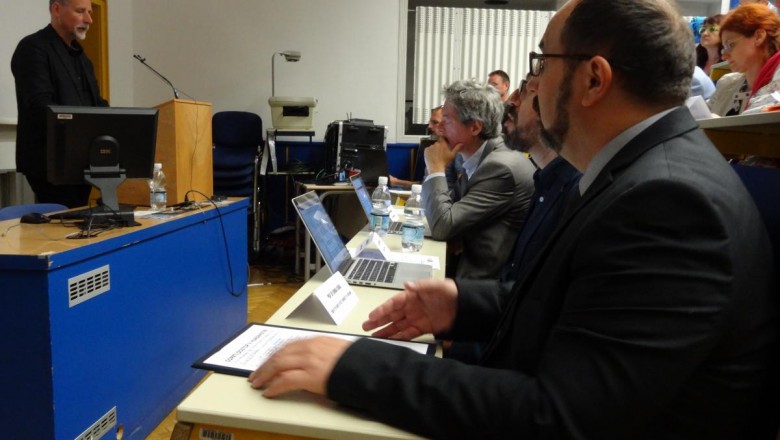
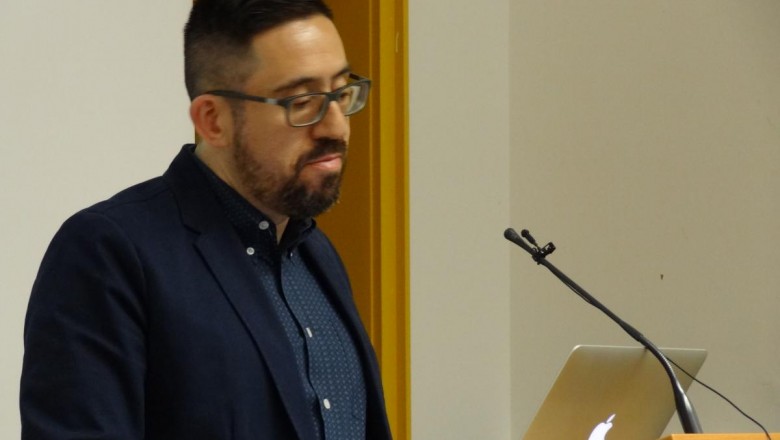
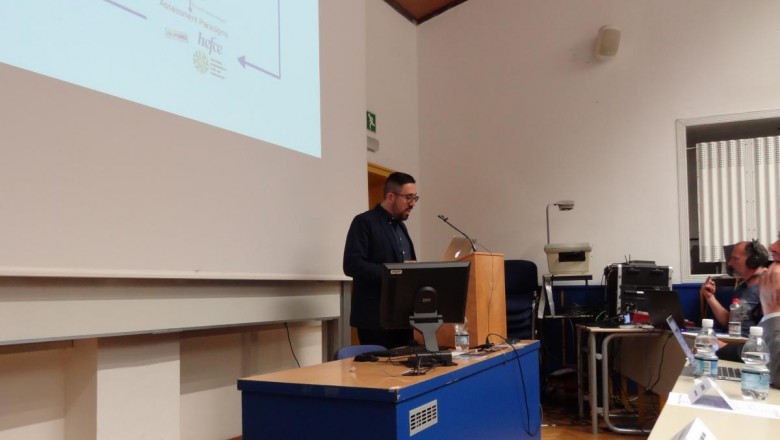
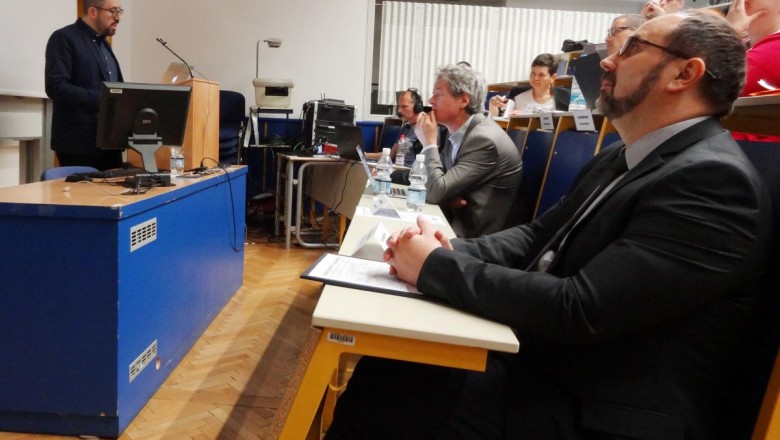
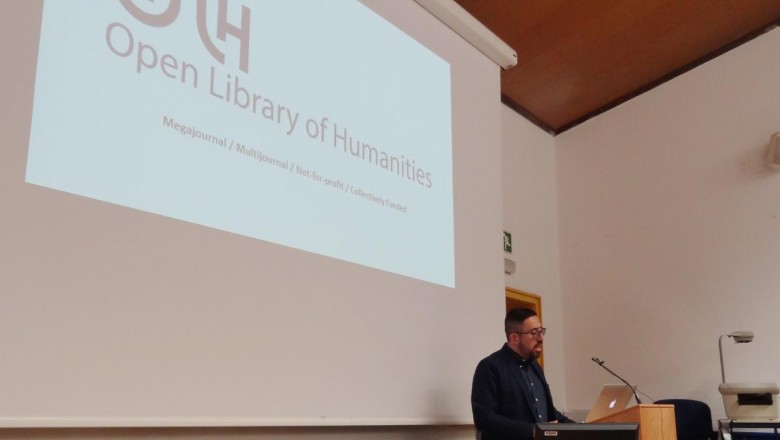
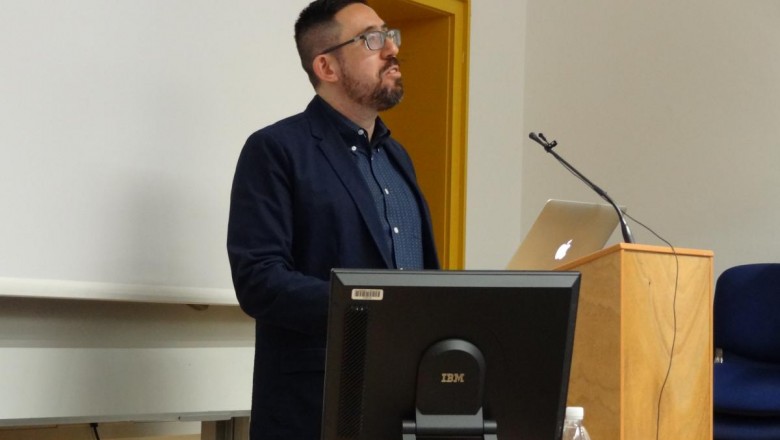
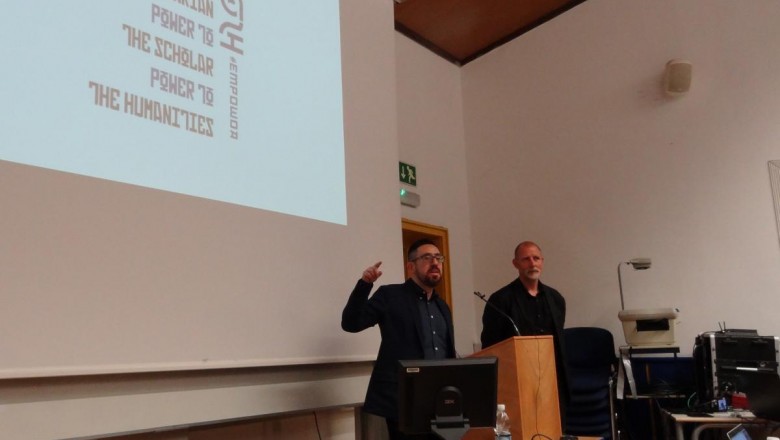
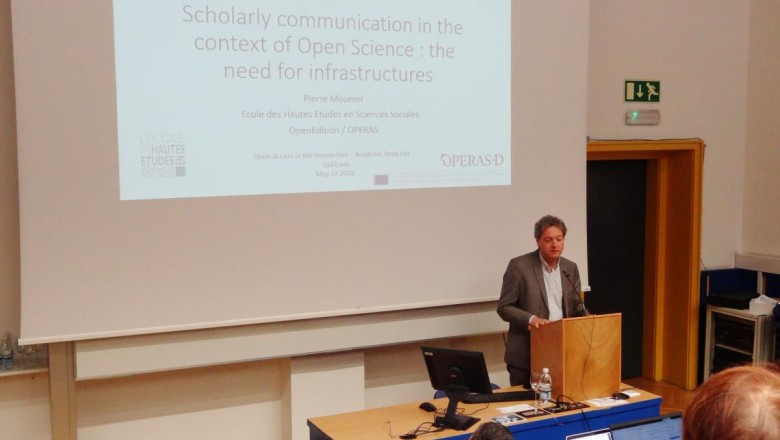
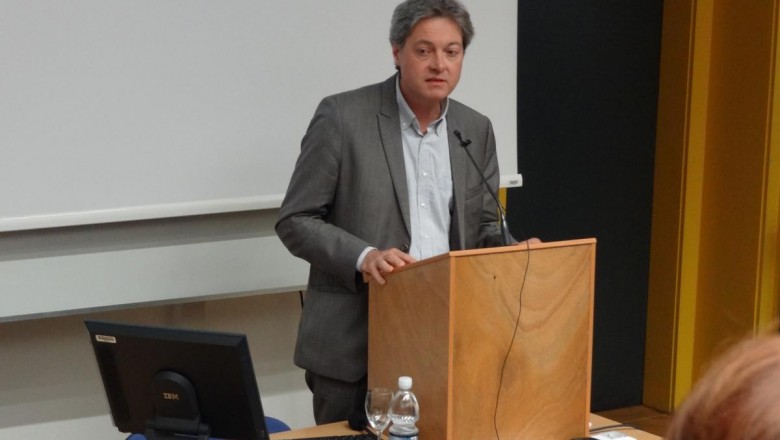
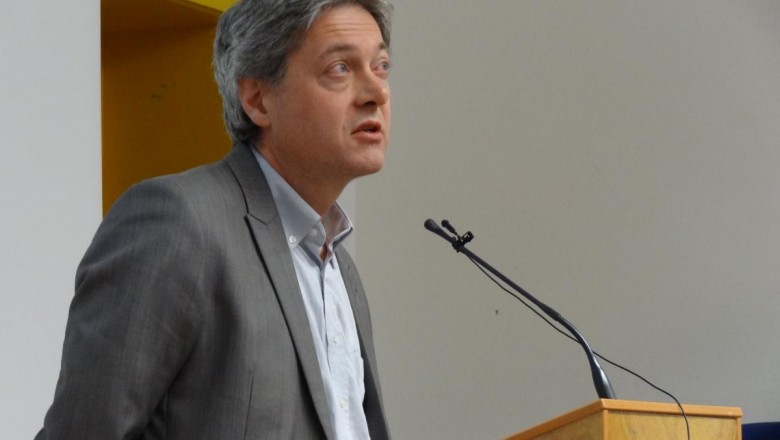
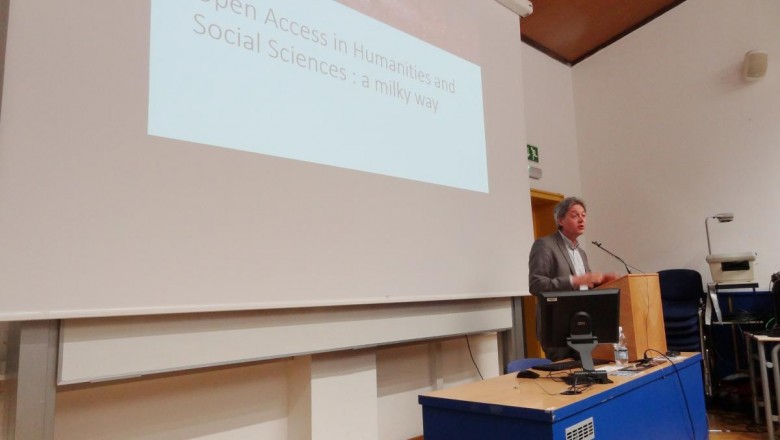
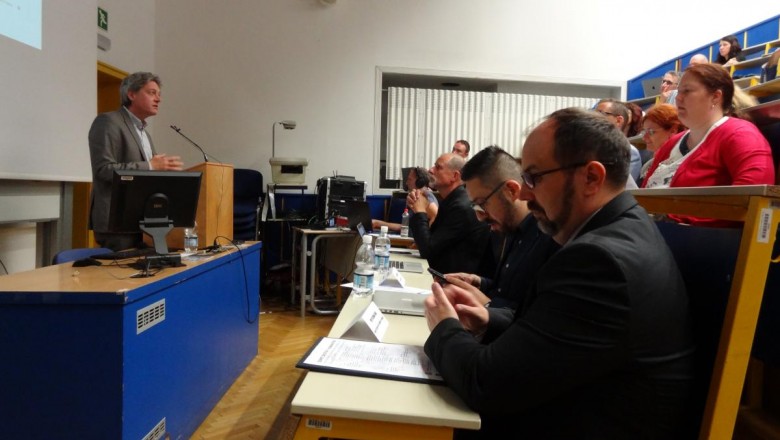
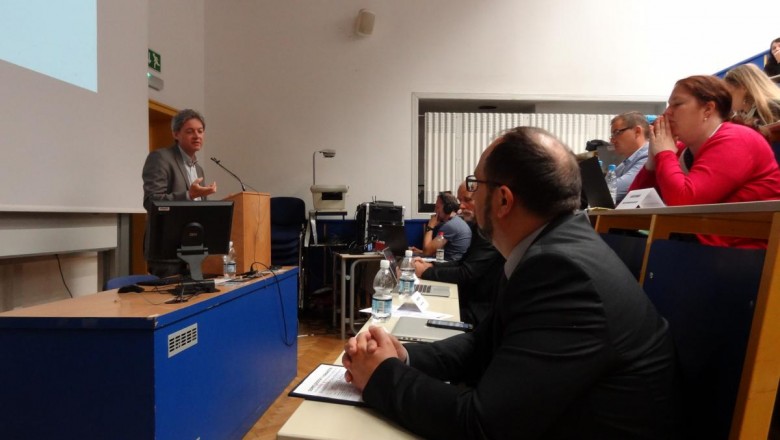
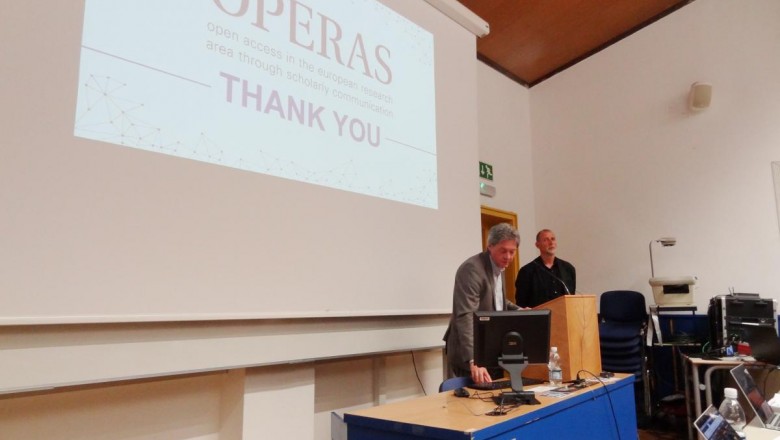
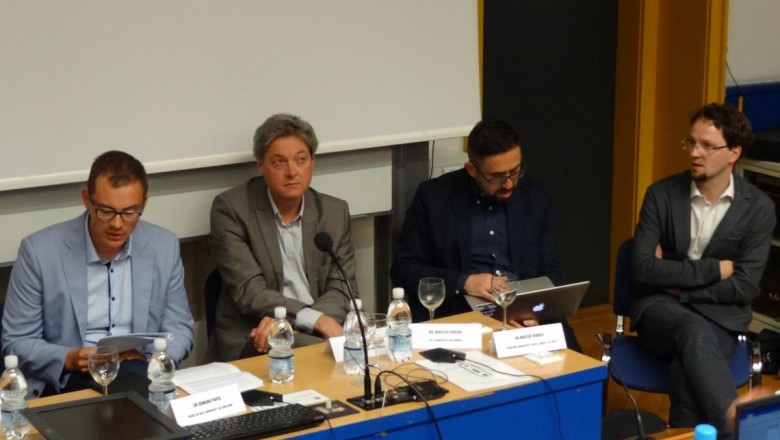
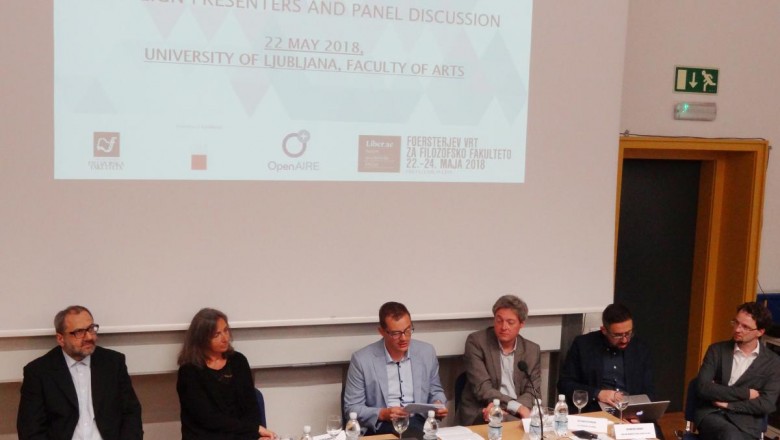
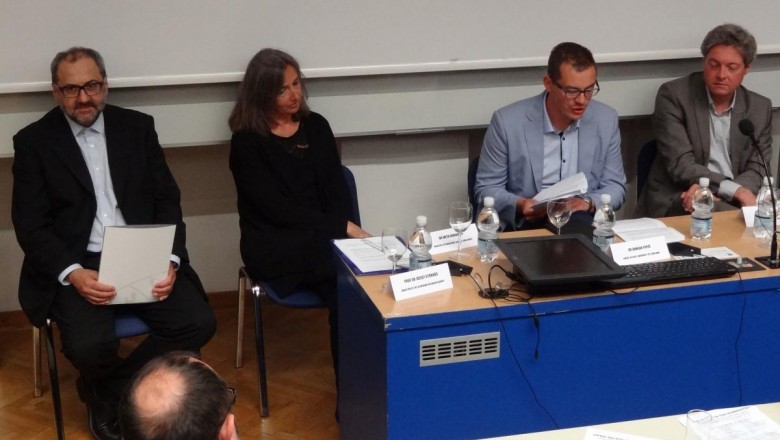
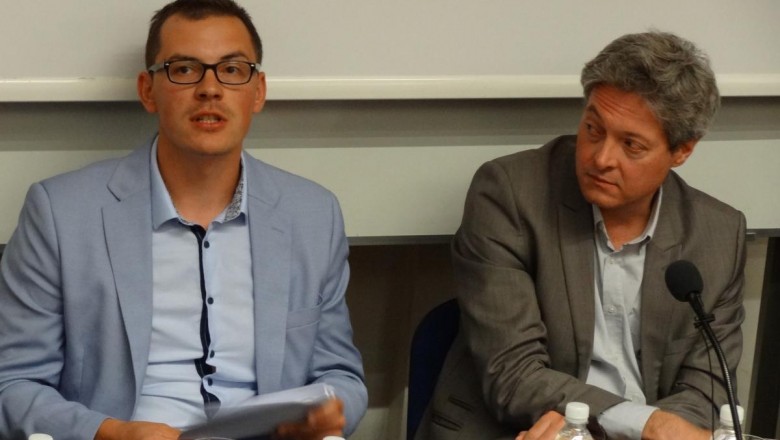
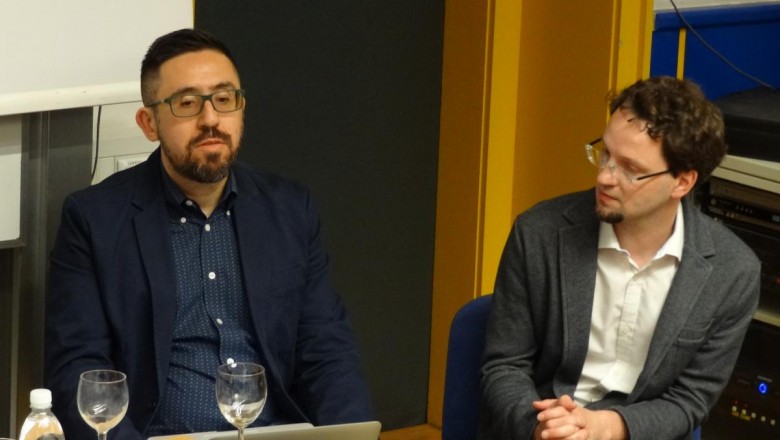
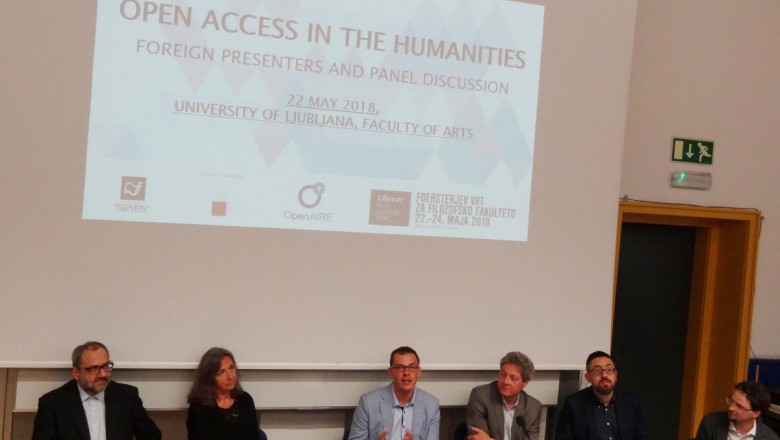
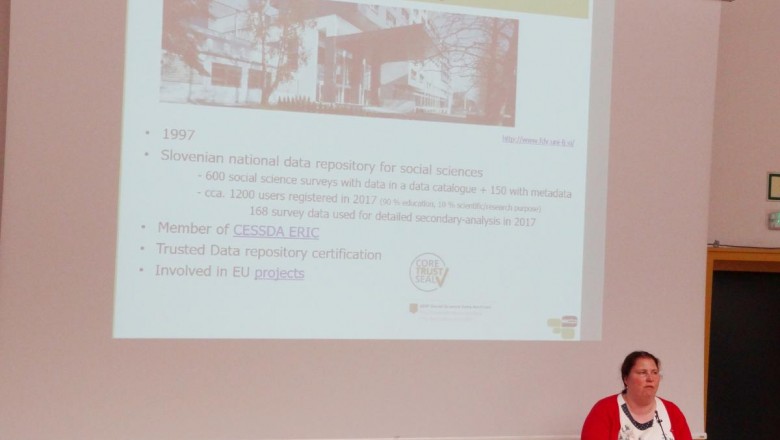
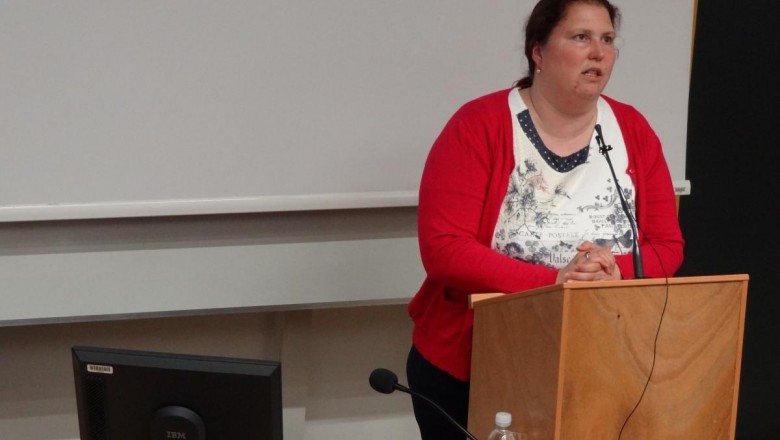
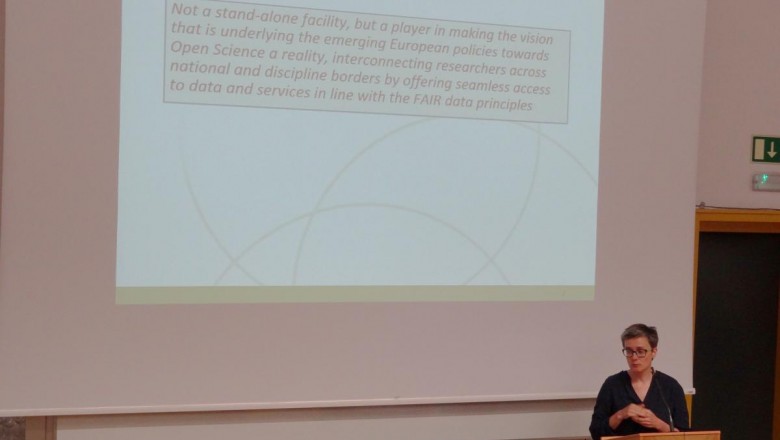
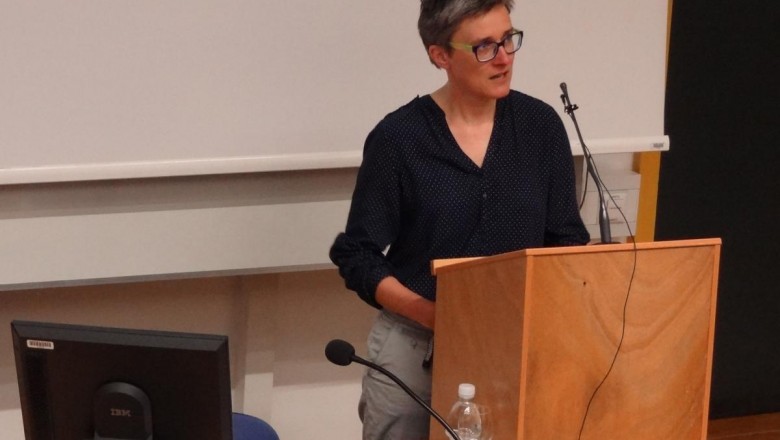
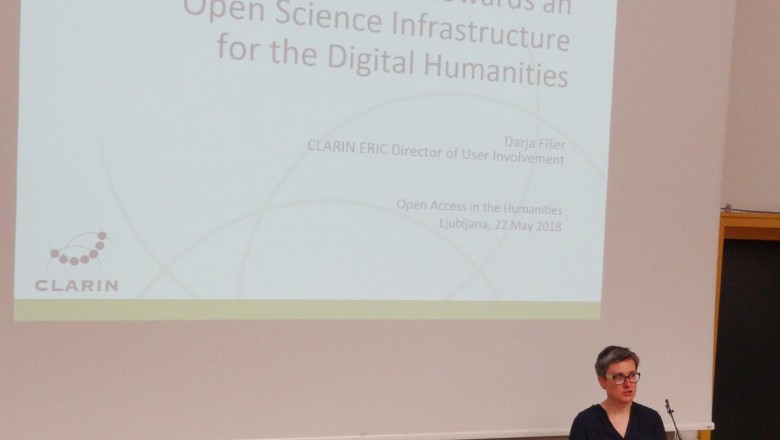
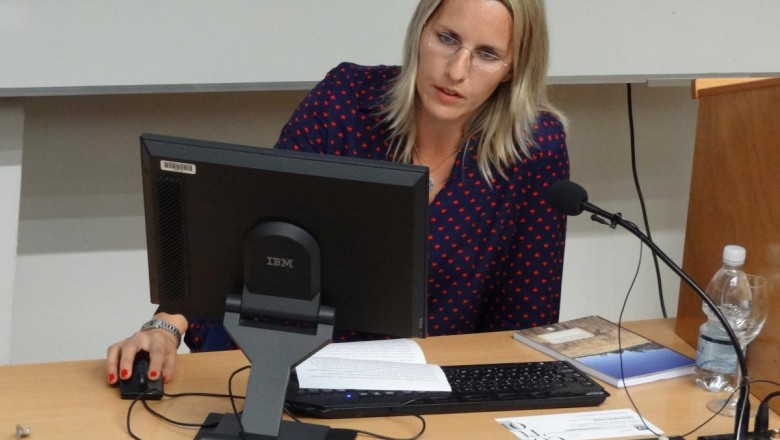
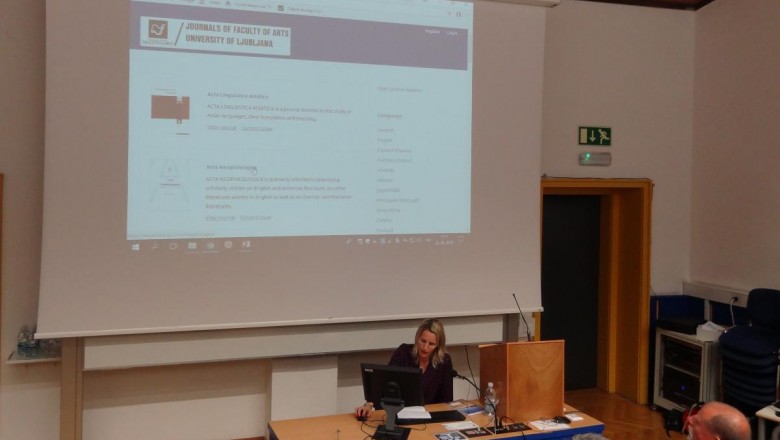
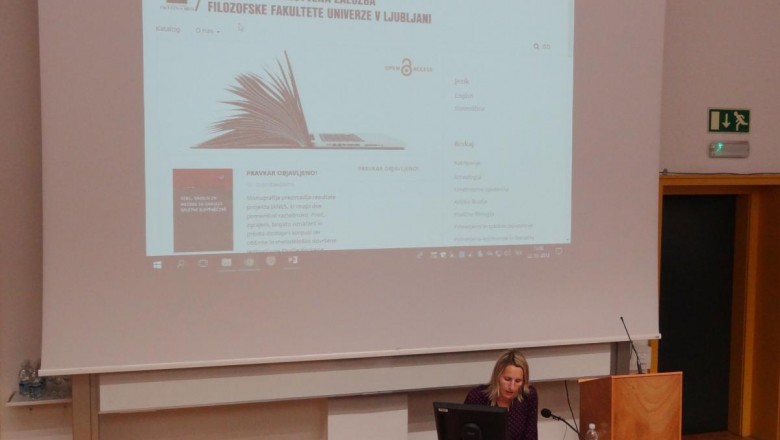
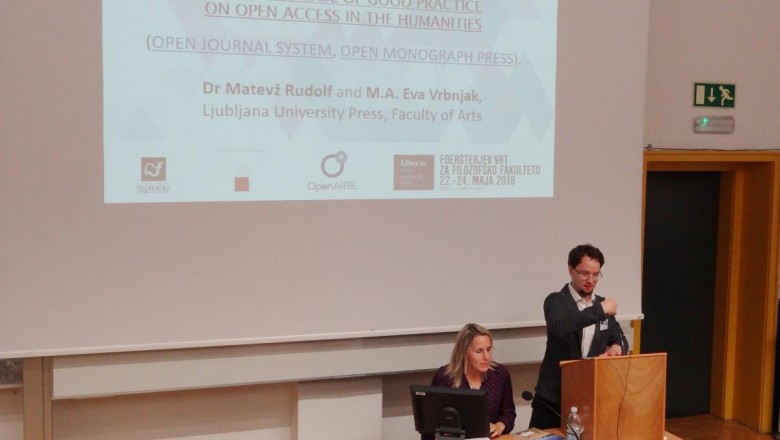
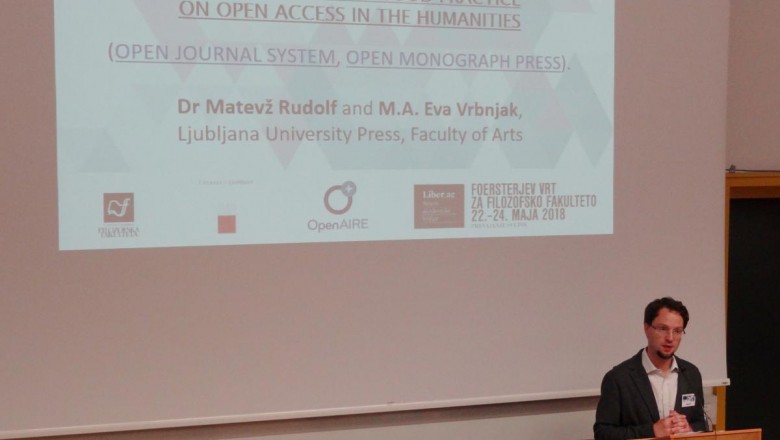
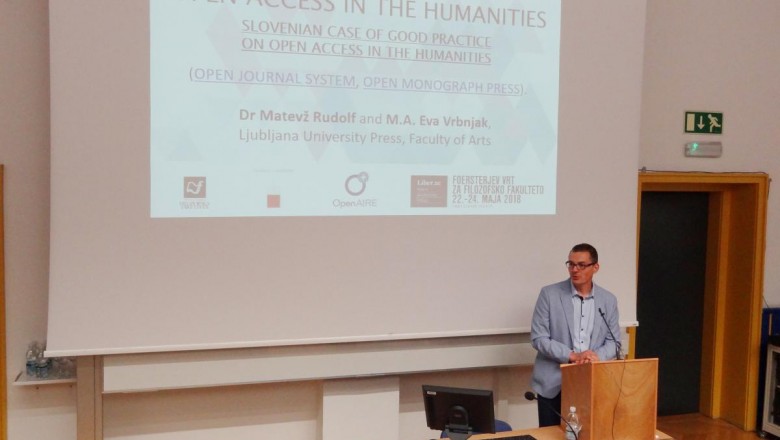
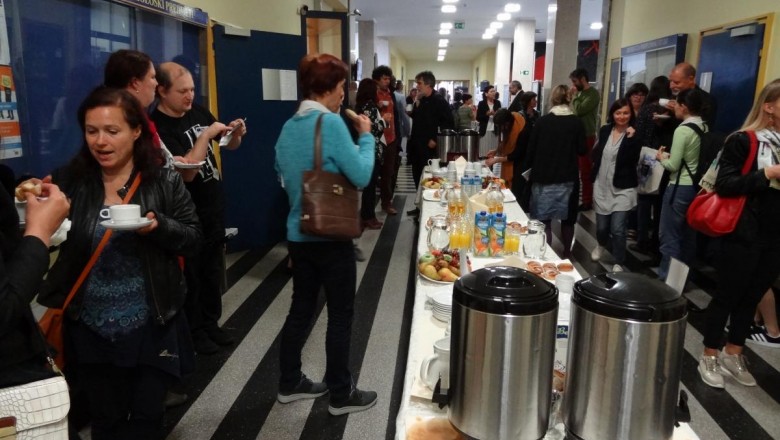
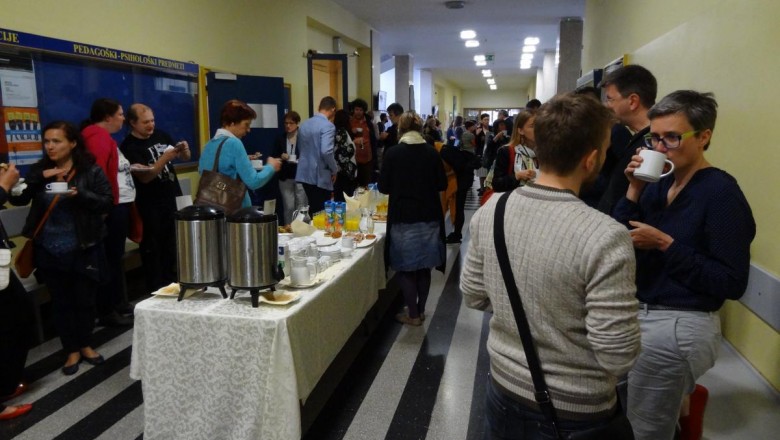
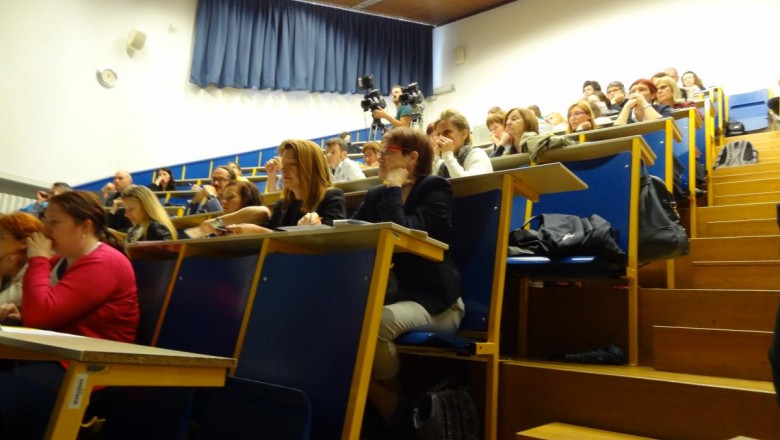
Photo credits: Jure Preglau, Matevž Rudolf
© Faculty of Arts, University of Ljubljana | All rights reserved.
Accessibility Cookies Privacy Policy
Design and development: ENKI